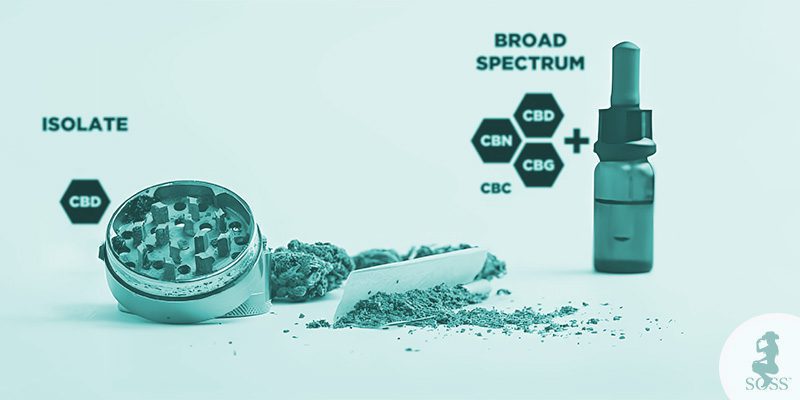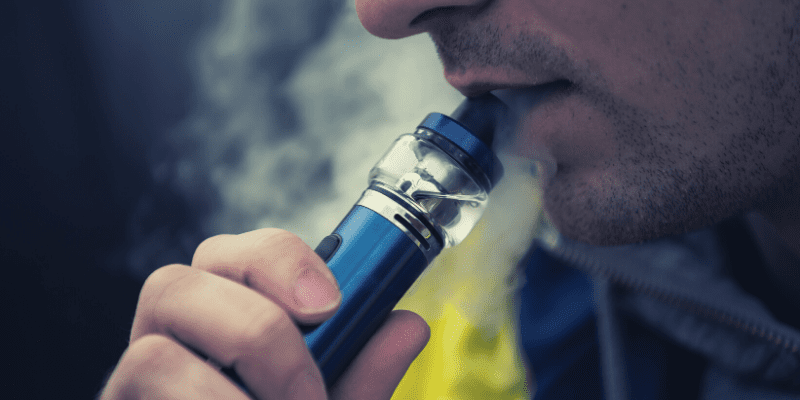Quality THC-free CBD is available if you know what to look for. This guide compares broad-spectrum and isolate forms to help you find out the best choice for you. In short, CBD isolate is the purest and “cleanest” form, while broad spectrum products include other cannabinoids, terpenes, and fatty acids. Note: Full-Spectrum CBD contains trace amounts THC and is NOT the best choice for THC Free wellness seekers.

Why Natural Medicines? Here’s My Take
I’ve seen firsthand how homeopathic choices have made significant differences in people’s lives. Every day I talk with customers who have trouble decompressing or are paralyzed with worry from normal everyday problems we all face. Helping is not just about providing quick relief. For me, it’s about co-discovering a more balanced and harmonious way of feeling and living. Most of us have busy hectic lives and some of us need a little help managing them. Personally, I’m purposefully trying to make the best health choices. Choices that I can stick with: skip the Advil, one less glass of wine, read a book before bed; you get the idea. And, CBD helps me a lot.
Key Points of this Article:
- Full-spectrum CBD incorporates the whole plant, including trace amounts of THC, creating an “entourage effect” for more overall benefits
- Broad-spectrum CBD offers benefits similar to full spectrum but with THC chemically filtered out, which is the best choice for those prefer to avoid ANY amount of THC.
- CBD Isolate is the purest form of cannabodiol. The extraction process eliminates all the other cannabinoids and terpenes, offering precise dosing and higher potency.
- Reading and understanding the Certificate of Analysis (COA) will provide information about the specific cannabinoids present in any CBD product.
- Choosing the right CBD product should align with your individual wellness goals.
- Consultation with your healthcare professional is advised before incorporating CBD into your wellness regimen.
Full-Spectrum CBD: Whole Plant Medicine
The most prevalent and famous compounds in the hemp plant are THC and CBD, but there are hundreds of others too. Think of full-spectrum CBD as your all-in-one daily multivitamin. It includes everything the hemp plant offers — yes, even a tiny bit of THC (U.S. legal amount, not enough to get you high). But here’s the cool part: when all these elements combine, they create the “entourage effect.”
The CBD “Entourage Effect”
It’s a team of wellness compounds working together to amplify the benefits – the age-old “greater than sum of the parts” syndrome. In my experience, full-spectrum formula is the go-to for anyone looking for the full potential of hemp and cannabis. For deeper understanding, learn to how read the Certificate of Analysis (COA) for the exact batch you are buying. Pay attention to the “high minors,” which are the minor cannabinoids like CBN, CBG THCv and others.
Broad-Spectrum CBD vs Isolate
Now, if you’re thinking, “Tonya, I love that idea, but I can’t tolerate even small amounts of THC because…” then broad-spectrum CBD is next best thing. It’s got all the goodness of the full-spectrum formula, but the THC has been chemically filtered out. (Important: this can and should be checked and verified by a third-party test procedure.) The best CBD companies will prominently display these results. (see above about learning to read a COA).
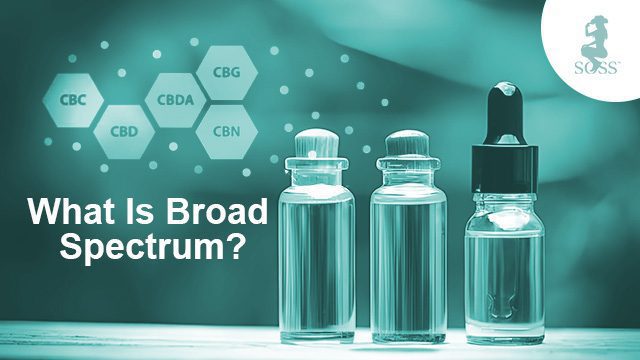
You still get a wide range of cannabinoids and terpenes working together, just without the THC. It’s fantastic for anyone needing or wanting to stay on the cautious side but still explore the benefits of CBD.
Pure CBD Isolate
Why? With all talk about the benefits of full and broad spectrum CBD what is the point of CBD isolate? In short, it’s all about potency and purity. No other cannabinoids, no terpenes, just pure fluffy CBD powder. Easily dissolved, easy to integrate and administer, very specific dosing. It’s the essence of simplicity, and an excellent choice for focusing on ultra-specific wellness goals or those who need higher doses without anything else in the mix. This is critical for pets, animals, lifestock, because THC is toxic for animals.
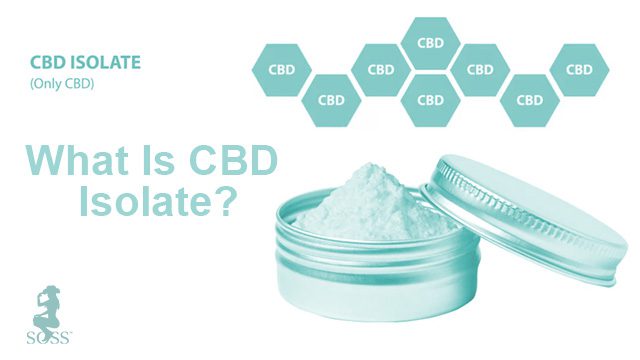
CBD isolate is tasteless and odorless, making it easy to add to products like edibles, topicals, or tinctures. CBD isolate is a preferred option for individuals subject to drug testing, as it contains no THC.
Differences Between Broad Spectrum and Isolate
| Feature | Broad Spectrum | Isolate |
| Composition | Contains multiple cannabinoids, terpenes, and other beneficial compounds. | Purely isolated compound, typically a single cannabinoid (e.g., CBD isolate). |
| THC Content | Technically THC Free, but check the COA to be sure | Fully extracted THC-free (0% THC). |
| Entourage Effect | Preserves the entourage effect due to the presence of multiple cannabinoids and terpenes, which may enhance therapeutic effects. | Lacks the entourage effect as it isolates a single compound, potentially reducing the synergistic benefits of other cannabinoids. |
| Cannabinoid Diversity | Contains a spectrum of cannabinoids, including CBD, THC, CBG, CBN, etc. | Limited to a single cannabinoid (e.g., CBD isolate contains only cannabidiol). |
| Legality | Legal status depends on local regulations. | Typically legal, as it contains no or negligible THC. |
| Drug Testing | Unlikely to result in positive drug tests, as it contains no THC.. | Unlikely to result in positive drug tests, as it contains no THC. |
| Use Cases | Preferred by individuals seeking the potential benefits of multiple cannabinoids without THC’s psychoactive effects. | Suitable for those specifically seeking the benefits of a single cannabinoid without other compounds. |
| Flavor and Aroma | Often retains the natural flavors and aromas of the plant due to the presence of terpenes. | Lacks the diverse flavors and aromas associated with the cannabis plant. |
| Processing Complexity | Requires more complex extraction processes to retain a broad spectrum of compounds. | Involves simpler extraction processes focused on isolating a single compound. |
| Product Diversity | Available in various forms, such as oils, tinctures, edibles, and topicals. | Commonly found in pure powder or crystalline form. |
| Cost | May be more expensive due to the complexity of extraction and the presence of multiple compounds. | Often less expensive as it involves isolating a single compound. |
Benefits of Broad Spectrum CBD
It is common for new users to be in a dilemma regarding which product to choose. Many times our customers come to us and ask for recommendations. Instead of saying what they should purchase, I ask them questions about their life and what they need. I then move on to explain various potential benefits and setbacks for different products so that they can make an informed decision.
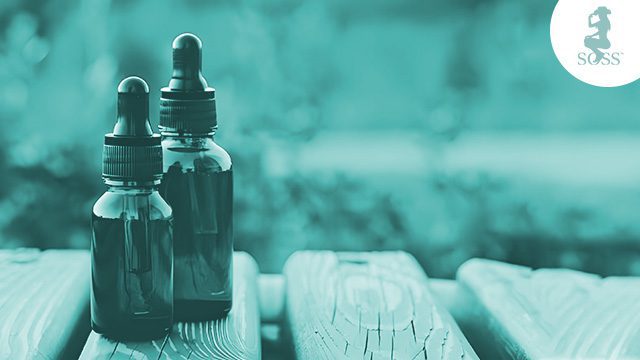
I believe you would like to know the subtle differences as well. Therefore, here are the potential benefits of using broad spectrum CBD products. Go through them as they will help you understand broad-spectrum CBD a little better.
1. Psychoactive Effects
Broad-spectrum compounds derived from hemp or cannabis are known for their potential therapeutic effects without causing significant psychoactive responses. The only discovered cannabinoid that has psychoactive effects is THC. Most broad spectrum products do not contain any trace of THC.
Our users of broad-spectrum CBD products often report experiencing a sense of relaxation, relief from stress, and improvements in mood, sleep, and overall well-being. These effects contribute to the growing popularity of broad-spectrum formulations as a more balanced alternative for you if you seek the potential health benefits of cannabinoids without the intoxicating effects associated with THC.
2. Minor Cannabinoids
A notable benefit of broad-spectrum cannabinoids lies in the inclusion of minor cannabinoids alongside the primary compound CBD. These minor cannabinoids contribute significantly to the overall therapeutic potential of the product.
Compounds such as cannabigerol (CBG), cannabinol (CBN), and others are found in broad-spectrum. They create an entourage effect with CBD. The entourage effect suggests that the combined action of various cannabinoids and terpenes may enhance the overall potential of CBD products than CBD isolate alone.
CBG, for instance, is believed to have anti-inflammatory properties, while CBN is associated with relaxation and sedative effects. These minor cannabinoids, in conjunction with CBD, offer a more comprehensive spectrum of benefits.
3. Additional Compounds
I have already mentioned the presence of additional compounds in the broad spectrum. This presence can provide you with several benefits. Together, these create the entourage effect. This means they work better when combined. Terpenes give you distinct aromas and may have health benefits of their own.
Benefits of Isolate CBD
CBD Isolate has several benefits, too. These products are THC-free, and it makes them an ideal choice for you if you want to avoid the risk of psychoactive effects.
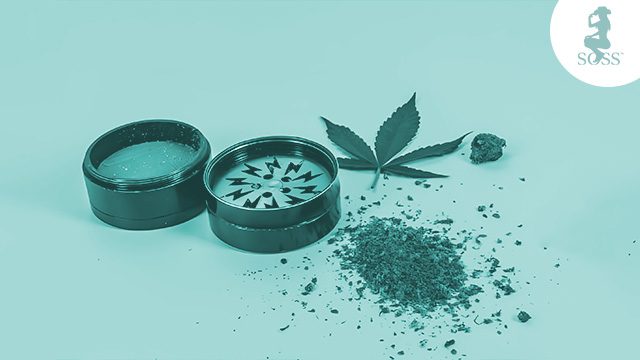
Here are the primary benefits of CBD Isolate that make them popular among users.
1. No Psychoactive Effects
Isolate CBD provides a key benefit in delivering therapeutic effects without inducing psychoactivity. The isolated compound of cannabidiol ensures a THC-free experience.
2. Easier to Measure Dosage
A notable advantage of Isolate CBD is its precision in dosage measurement. You can accurately measure the intake of CBD as it contains no other compounds.
3. More Concentrated Form of CBD
High concentration is another important benefit of CBD isolate. Hemp biomass undergoes a meticulous extraction process to isolate and remove all other cannabinoids, leaving behind a crystalline or powder substance composed solely of CBD. This concentration results in a product with a high CBD content. The concentration of CBD is usually 99%.
Possible Side Effects
CBD products are well tolerated by most people, not harmful and virtually free of side effects. However, if taken in excessive amounts, you may experience some potential side effects. The effects are identical for both broad spectrum and CBD isolate.
-
- Dry Mouth: CBD may reduce your saliva production and lead to a dry mouth sensation. Staying hydrated can help alleviate this.
-
- Drowsiness: In some cases, CBD may cause drowsiness or a feeling of relaxation. I suggest to leave heavy machine operation and driving to another day.
-
- Changes in Appetite: CBD might influence appetite and cause increased or decreased hunger in some individuals.
-
- Digestive Issues: Mild digestive issues such as diarrhea have been reported in some users. These effects are typically temporary.
Frequently Used CBD Oil Terms
There are several terms that are frequently used. I have prepared a list of such words that might be useful for you.
-
- Full-Spectrum CBD: CBD oil contains a wide range of cannabinoids, and other beneficial compounds found in the cannabis plant, including THC.
-
- Broad-Spectrum CBD: Similar to full-spectrum CBD but with the THC removed or reduced to trace amounts.
-
- CBD Isolate: Pure CBD extract without other cannabinoids or compounds from the cannabis plant.
-
- Terpenes: Terpenes are aromatic compounds often used in cannabis products that contribute to the flavor and scent of the product. They may also have their own set of therapeutic effects.
-
- Entourage Effect: The theory that cannabinoids and other compounds found in the cannabis plant work together synergistically to enhance each other’s therapeutic effects.
-
- Hemp Seed Oil: DO NOT BUY HEMP SEED OIL products thinking they are CBD! These oils are extracted from the seeds of the hemp plant (not the flower). “Hemp Seed Oil” does not contain any therapeutic cannabinoids. Often confused with *real* cannabidiol (CBD oil) these products are sold on Amazon and in chain stores and is the main reason people say “I tried CBD and it didn’t do anyting for me.”
For a detailed discussion on the CBD glossary, read this article.
Frequently Asked Questions
- Will full-spectrum CBD products make me feel “high”?
- Full-spectrum CBD products contain only trace amounts of THC (less than 0.3%), which is not enough to produce psychoactive effects.
- Can I use CBD if I get drug tested?
- If you are subject to drug testing, you may want to choose broad-spectrum or isolate CBD products, as they are THC-free. However, it’s essential to buy from reputable sources that provide third-party lab results to confirm the product’s THC content.
- How can I verify the quality of a CBD product?
- Look for products that provide a Certificate of Analysis (COA) from a reputable third-party lab. This analysis should confirm cannabinoid content and purity, ensuring the product is free from harmful substances.
- What are “high minors” in CBD products?
- “High minors” refer to minor cannabinoids like CBN, CBG, and THCv, which are present in smaller quantities than CBD but contribute to the entourage effect in full-spectrum products.
- Is CBD safe for pets and animals?
- CBD is commonly used for pets, especially in isolate form, for its potential health benefits. It’s important to use products specifically formulated for animals and to consult with a veterinarian.
Finding Your CBD Match
I strive to help everyone I meet, but specialize working with natural health enthusiasts who are tyring to ditch pharma drugs for natural remeies, mostly women age 40-60. Choosing the right CBD for you isn’t about one being better than the other; it’s about what works for your body, lifestyle, and wellness journey. There’s a path for everyone.
Let’s Chat About Natural Health Products!
Questions? Curious about how to incorporate CBD into your wellness routine? Reach out! I’m here to share insights, offer guidance, and support you every step of the way.
Together, let’s unlock the full potential of natural wellness, making every day a step towards a healthier, happier you.
Remember, while CBD is a powerful tool in our wellness toolkit, it’s always a good idea to consult with a healthcare professional before starting any new supplement.
I strive to help everyone I meet, but specialize working with natural health enthusiasts who are trying to ditch big pharma drugs for natural remedies, mostly women age 40-60.
References:

